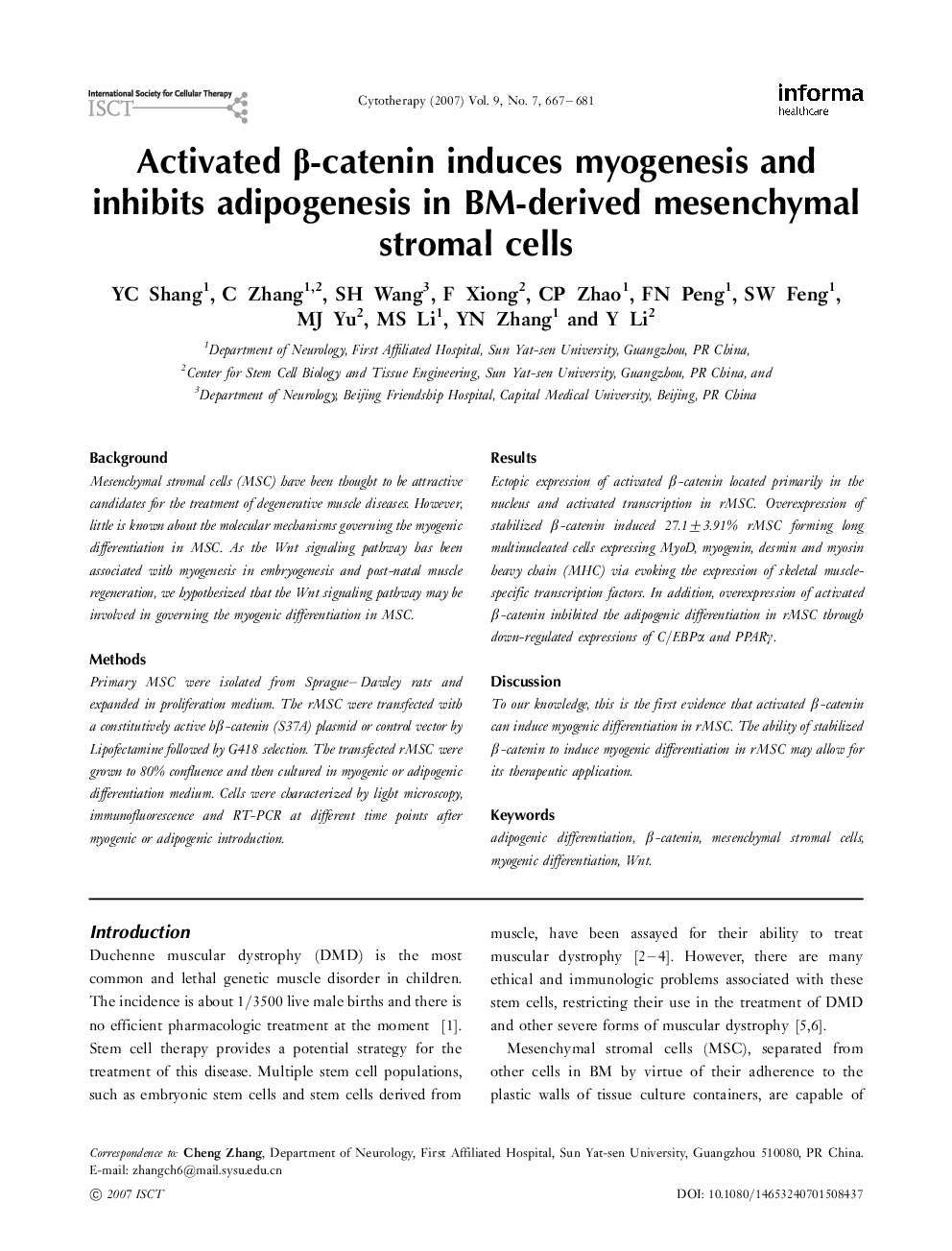| Article ID | Journal | Published Year | Pages | File Type |
|---|---|---|---|---|
| 2172787 | Cytotherapy | 2007 | 15 Pages |
BackgroundMesenchymal stromal cells (MSC) have been thought to be attractive candidates for the treatment of degenerative muscle diseases. However, little is known about the molecular mechanisms governing the myogenic differentiation in MSC. As the Wnt signaling pathway has been associated with myogenesis in embryogenesis and post-natal muscle regeneration, we hypothesized that the Wnt signaling pathway may be involved in governing the myogenic differentiation in MSC.MethodsPrimary MSC were isolated from Sprague–Dawley rats and expanded in proliferation medium. The rMSC were transfected with a constitutively active hβ-catenin (S37A) plasmid or control vector by Lipofectamine followed by G418 selection. The transfected rMSC were grown to 80% confluence and then cultured in myogenic or adipogenic differentiation medium. Cells were characterized by light microscopy, immunofluorescence and RT-PCR at different time points after myogenic or adipogenic introduction.ResultsEctopic expression of activated β-catenin located primarily in the nucleus and activated transcription in rMSC. Overexpression of stabilized β-catenin induced 27.1 ± 3.91% rMSC forming long multinucleated cells expressing MyoD, myogenin, desmin and myosin heavy chain (MHC) via evoking the expression of skeletal muscle-specific transcription factors. In addition, overexpression of activated β-catenin inhibited the adipogenic differentiation in rMSC through down-regulated expressions of C/EBPα and PPARγ.DiscussionTo our knowledge, this is the first evidence that activated β-catenin can induce myogenic differentiation in rMSC. The ability of stabilized β-catenin to induce myogenic differentiation in rMSC may allow for its therapeutic application.
